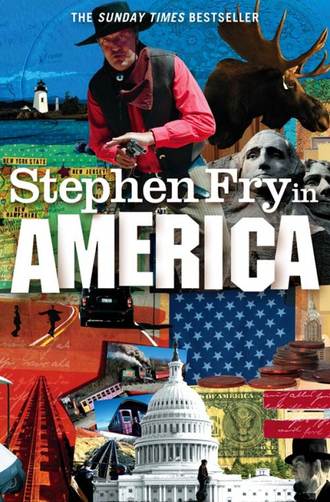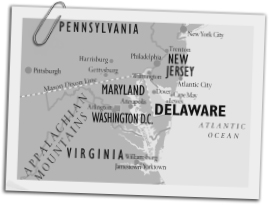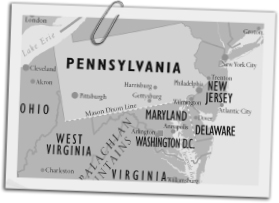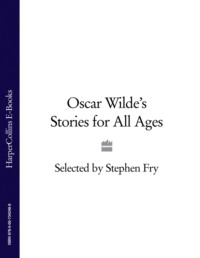
Полная версия
Stephen Fry in America
Slap. ‘No, no. You get it wrong!’
‘Sorry, but …’
‘No “but”, no “sorry”. Not difficult.’
By the time a group of real players come along I am feeling hot, bothered and nervous. Kelly, originally a Vietnamese ‘boat person’, is happy to let me sink or swim.
Slowly, after a few mistakes, gently pointed out by the seasoned pros sitting opposite me, I start to get the hang of things.
Above my head glitter the chandeliers that for some reason Trump is so proud of. ‘$14 million worth of German crystal chandeliers, including 245,000 piece chandeliers in the casino alone, each valued at a cost of $250,000, and taking over 20 hours to hang,’ trumpets the publicity.
‘An entire two-year output of Northern Italy’s Carrera marble quarries – the marble of choice for all of Michelangelo’s art – adorn the hotel’s lobby, guest rooms, casino, hallways and public areas.’ Yes, it may well have been the marble of choice for Michelangelo’s art. English was the language of choice for Shakespeare’s, but that doesn’t lift this sentence, for example, out of the ordinary. And believe me the only similarity between Michelangelo and the Trump Taj Mahal that I can spot is that they’ve both got an M in their names.
‘$4 million in uniforms and costumes outfit over 6,000 employees.’ Including one butter-coloured shirt as worn by me.
‘Four and a half times more steel than the Eiffel Tower.’
‘If laid end to end, the building support pilings would stretch the 62 miles from Atlantic City to Philadelphia.’
‘The Trump Taj Mahal Casino Resort can generate enough air conditioning to cool 4,000 homes.’
You see, all this mad boasting says to me is ‘Our Casino Makes A Shed Load Of Money’. They can afford to lavish a quarter of a million bucks on each chandelier, can they? And where does this money come from, we wonder? From profits from their ‘city within a city’ Starbucks concession? From sales of patent leather belts and onyx desk sets? No, from the remorseless mathematical fact that gambling is profitable. The house wins. The punter loses. It is a certainty.
This abattoir may be made of marble, but it is still a place for stunning, plucking, skinning and gutting sad chickens.
Hey, but it’s fun, Stevie! It’s gaming. People want to play, don’t be such a Savonarola.
Well, perhaps I am a bit of a grumpy guts today. I am treated very well and I do enjoy the dealing part of the game. The players facing me are grown-ups. They know what they are doing. Who am I to pee on their parade?
Still, it is with real pleasure that I leave Atlantic City behind me, certain that I shall never return.
South we drive, the taxi and I, towards Cape May and the Delaware Bay.

DELAWARE
KEY FACTS
Abbreviation:
DE
Nickname:
The First State
Capital:
Dover
Flower:
Peach blossom
Tree:
American holly
Bird:
Blue hen chicken
Macroinvertebrate:
Stonefly
Motto:
Liberty and Independence
Well-known residents and natives:
The du Pont family, Howard Pyle, R. Crumb, Elizabeth Shue, Judge Reinhold, Susan ‘The Producers’ Stroman, Sean Patrick Thomas, Ryan Phillippe.

DELAWARE
‘A policeman I met in Lewes where the ferry lands told me that “soft and slow” is the Delaware way.’
Poor old Delaware. I don’t know why I say this. She is a beautiful state. Only Rhode Island is smaller, but Delaware can make greater claims to history. Being the First State to ratify the US constitution is her proudest boast. Being home to the DuPont empire another. DuPont invented nylon, polymers and Teflon and is still the second-biggest chemical company in the world.
For most Americans the word Delaware conjures up the painting by Emanuel Leutze, ‘Washington Crossing the Delaware’. It commemorates an important moment in the colonial wars – or the Revolutionary Wars as Americans prefer to call them.
On Christmas Day 1776 Washington led his army, which had been twice defeated by the British, across the river and, making landfall in Pennsylvania, led them up to Trenton, New Jersey where they surprised the British and won a famous victory.
It is one of those fine historical moments of generalship on which reputations rest. General Wolfe scaling the Heights of Abraham to win Quebec, Horatius on the bridge, Hannibal passing through the Alps. Washington crossing the Delaware.
Unfortunately for Delaware none of this took place within the state itself. Washington crossed from New Jersey into Pennsylvania. Only the name of the river has any connection with the state of Delaware. He would today have taken the Delaware Memorial Bridge, the longest twin-span suspension bridge in the world.
A policeman I meet in Lewes where the ferry lands with considerably less hoopla and ice than Washington’s boats, tells me that ‘soft and slow’ is the Delaware way and now, as I rattle hard and fast up the main road towards the state capital Dover, I feel a bit of a heel for betraying the state philosophy quite so brutishly and insensitively.
I drive along, humming the words of the Perry Como song, ‘What did Della wear?’ I think about where exactly we are.
Delaware is in a kind of middle area. This is not yet the South, but nor am I any longer in New England, that much is clear. The countryside is beautiful and one or two trees still sport bright fall colours, but the architecture and the landscape have subtly changed. Less dramatic in terms of crags, valleys and hills, less clapboard and slate in terms of housing. Dutch barns, Dutch gabled houses, softly rounded hills.
Dover comes and goes, then I pass Wilmington, the biggest town in the state. I am already very nearly in Pennsylvania.
Well aware, Delaware, that I did not give you much attention. Another time.

PENNSYLVANIA
KEY FACTS
Abbreviation:
PA
Nicknames:
The Keystone State, The Quaker State
Capital:
Harrisburg
Flower:
Mountain laurel
Tree:
Eastern hemlock
Bird:
Ruffed grouse
Toy:
Slinky (I’m not making this up)
Motto:
Virtue, Liberty and Independence
Well-known residents and natives:
Benjamin Franklin, Gertrude Stein, Wallace Stevens, John Updike, August Wilson, James A. Michener, Dean Koontz, John O’Hara, Thomas Eakins, Pearl S. Buck, Man Ray, Andy Warhol, Marilyn Horne, W.C. Fields, the Barrymores, David O. Selznick, Gene Kelly, Jayne Mansfield, Grace Kelly, Henry Mancini, Charles Bronson, Richard Gere, Kevin Bacon, Sharon Stone, Will Smith, M. Night Shyamalan, Perry Como, Bill Haley, Chubby Checker, Keith Jarrett, Hall and Oates, Christina Aguilera.

PENNSYLVANIA
‘There is something in the hope and idealism of this frustrating and contradictory nation that still makes my spirits soar.’
The Commonwealth of Pennsylvania is the only state to be named after a person. Oh, apart from Washington of course. And New York, because that was named not after the city of York, but after James, Duke of York. Oh, and the Carolinas were named after King Charles I. And Virginia after Elizabeth, the Virgin Queen. And Maryland after Henrietta Maria, wife of Charles I … all right. All right. So actually lots of states have been named after people. Pennsylvania is just one. It gets its name from William Penn, the Quaker who was the founder and absolute controller of what was in its day the largest of the colonial states. Although in strict fact it was named after his father, Admiral Sir William Penn, who had lent Charles II a great deal of money and received in return the rights to the land west of the Delaware River on behalf of his son. The Admiral himself was not a Quaker (you cannot really have a Quaker with a military rank, it doesn’t compute) and did not like the fact that his son was, but William Jnr, a remarkable man who had braved much contempt, imprisonment and persecution for his pacifist, heterodox beliefs, used the family money, his father’s favour with the King and his own intelligence and natural leadership skills to carve out this great tract of land, which functioned independently under a democratic constitution long before independence came.
Philadelphia (an adaptation of the Greek for ‘brotherly love’) is the chief city, although not the capital. Here can be found Independence Hall and the famously, and perhaps proleptically, cracked Liberty Bell amongst other tourist attractions.
Although America was consecrated, if that is the right word (and you will soon see why I chose it ) on July 4th, 1776 in Philadelphia when John Hancock became the first to append his name (one’s ‘John Hancock’ in America is to this day one’s signature) to the Declaration of Independence, for me and for many the moment America grew up was when it was re-consecrated ‘four score and seven’ years later on a battlefield 140 miles to the west of Philadelphia, towards which I am now driving, under heavy clouds and through torrential rain.
Gettysburg
The weather improves with dramatic suddenness the moment I pass the sign that tells me I have arrived in Gettysburg. The clouds depart, a clear autumnal sun lights the still bright leaves of the trees around the cemetery and makes the puddles glint and flash as I pass.
I am welcomed by Abraham Lincoln. Well, by an actor, historian and lookalike called Jim. Jim conducts me around the cemetery, contriving to stay in character in a way that is not irritating or twee.
It might seem something of a puzzle that a nation born out of such high ideals, such humanitarian vision and such intellectual clarity and rational enlightenment as America should have descended, by the 1860s, into the bloodiest war that humanity had ever recorded. Man for man, no conflict has ever been more attritional and deadly than the American Civil War of 1861–65.
Jim offers the view that it is perhaps only in the clear light of history that one can argue the war had to happen. America’s written constitution, with its lofty air of permanence and marmoreal splendour, had not addressed what America might be in the modern world. To us all now the Civil War was, or should have been, about the evils of slavery and that is how most will think of it. But many of the Northerners who fought so bitterly, and with such ample funding, were fighting because their paymasters and political leaders looked across the Atlantic at the Industrial Revolution that was propelling Britain to unimagined heights of prosperity and they saw that their own country, with its two economies, one powered by slavery and the other not, was at a huge disadvantage. Slavery was outlawed across Europe, whose countries would not trade with America – not so much out of moral repugnance as annoyance at the unfair advantage a labour bill of zero gave the plantation owners. The North wanted to create conditions for a modern industrial state, an enterprise economy, and to do that it had to bid an enforced goodbye to the plantations. It was no good having two Americas: a neighbour with a slave economy was never going to allow the kind of commercial equity the North demanded. So it was, au fond
Конец ознакомительного фрагмента.
Текст предоставлен ООО «ЛитРес».
Прочитайте эту книгу целиком, купив полную легальную версию на ЛитРес.
Безопасно оплатить книгу можно банковской картой Visa, MasterCard, Maestro, со счета мобильного телефона, с платежного терминала, в салоне МТС или Связной, через PayPal, WebMoney, Яндекс.Деньги, QIWI Кошелек, бонусными картами или другим удобным Вам способом.


